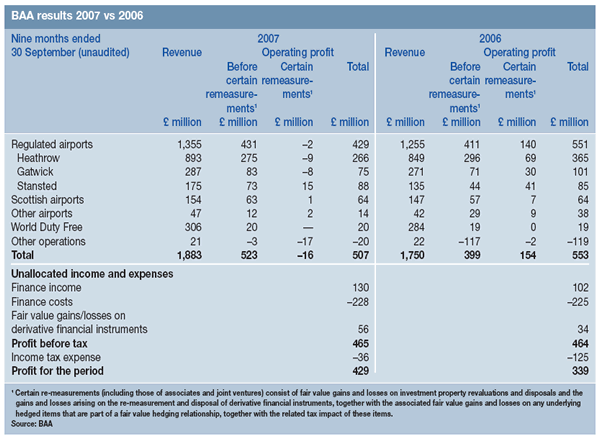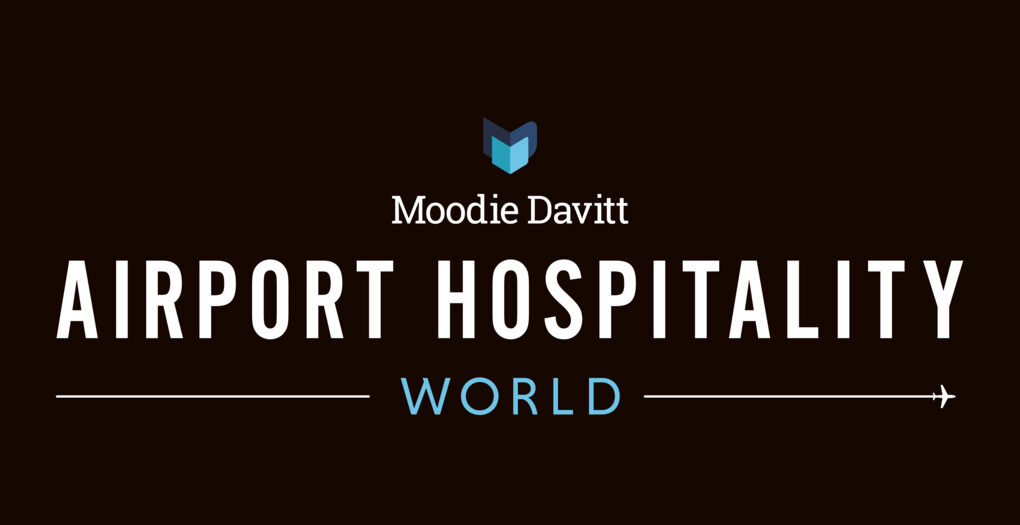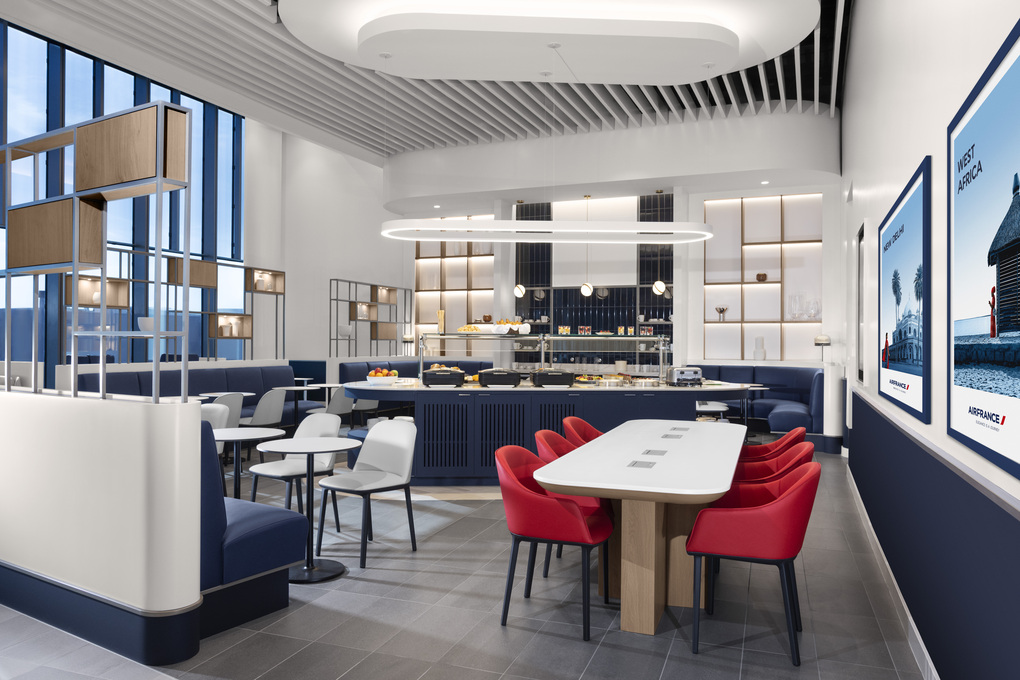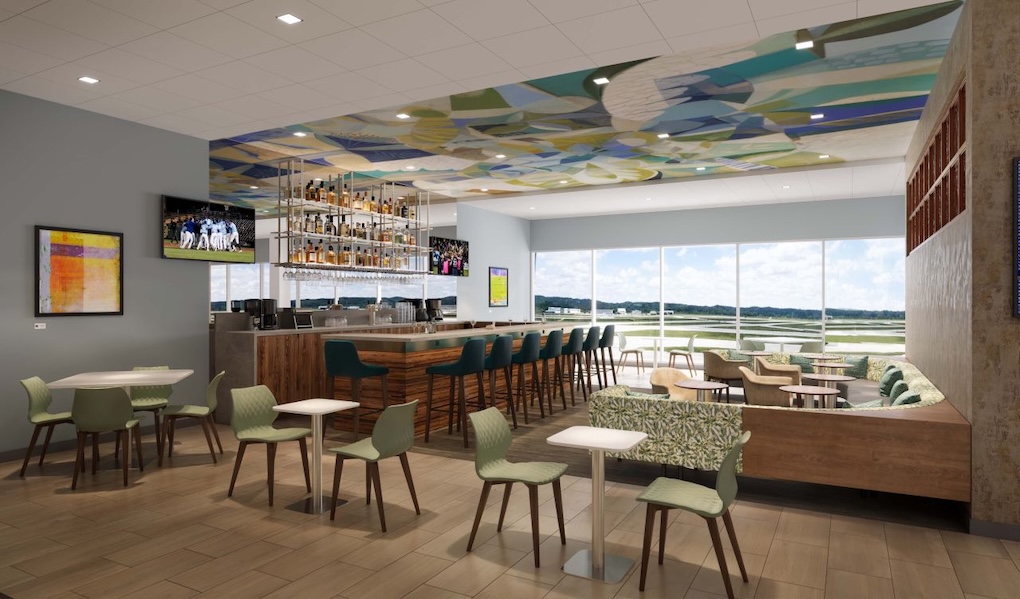UK. The consortium led by Ferrovial, which owns BAA, today announced that World Duty Free, the UK airport company’s travel retail subsidiary, is up for sale.
World Duty Free Managing Director Mark Riches confirmed the planned divestment in a joint interview with The Moodie Report and Travel Retail Business/TREND (Doug Newhouse) this afternoon London time. “The world’s worst-kept secret is out,” he said. “The decision has now been taken to sell World Duty Free. That process starts pretty much immediately and it will run its course over the next few months. So it’s now official that the business is up for sale and new owners are being looked for.”
Riches said he expected high interest. “Why wouldn’t people be interested in a business that has the kind of locations and portfolio of shops that this one has? It’s not every day that a tax and duty free business of this stature comes onto the market.” But he said it would be “wholly inappropriate” for him to comment on the chances of a World Duty Free management team-led bid for the business.
He said the decision to sell followed a strategic review of the business by Ferrovial (conducted through Merrill Lynch) of a number of BAA businesses that had been declared ‘non-core’. Riches said the appropriate information would now be sent out to those who had previously expressed a desire to acquire the business plus any other interested parties.
Asked by Newhouse for a time frame, he said: “There is a rough time scale”¦ I think we would seek to have this concluded by mid-year next year.”
Riches informed his management team earlier today as well as key brand partners. “As I would have expected they [management] were very professional. They were aware of the uncertainty and of the strategic review and they were aware that the business might be put up for sale. They conducted themselves exactly as I thought they would. They have been hugely professional in leading their teams over the last few months, during which time there has been considerable uncertainty.
“They have been used to reading stuff about the business and used to not adding to the speculation. We now swap one piece of uncertainty for another. Now, whether the business will be sold or not is no longer an uncertainty. The uncertainty is now over who the new owner will be.”
He continued: “They know that it will stay on the agenda for several months. The ambition as always is to ensure that the customer is not affected in any way, shape or form. Knowing my team as I do, with Christmas just around the corner, people will be focusing on the right stuff and things they can control as opposed to things they can’t control. But clearly it’s a big event for everyone at World Duty Free.”
Asked if the recent Civil Aviation Authority (CAA) proposals relating to any divestment (see below for full details) had formed the framework of the RFP, Riches replied: “I’m not party to the detail of the RFP but I know that my colleagues have paid great attention to the CAA recommendations. I can’t say whether the CAA [proposals] will be followed exactly to the letter but”¦ I wouldn’t be hugely surprised if the CAA recommendations are followed.”
Asked by The Moodie Report about the contract lengths on offer across the seven-airport portfolio, Riches said it would not be appropriate for him to comment: “That’s for the potential acquirers and the disposal team to really take care of. But you’re on the money – you have read the CAA document, it’s in the public arena and they were quite clear. I see no reason why we would deviate much from that.”
THE LIKELY CONDITIONS OF THE SALE
The announcement was widely expected after November’s CAA report on price controls at London Heathrow and Gatwick effectively cleared the way for a sale of the BAA retail subsidiary. As revealed last month by The Moodie Report, the CAA said that it was “not minded” to intervene in any sale, while offering clear framework terms to BAA for any divestment.
The CAA spelled out three key proposals (accepted by BAA) relating to a sale. The first was that the retail contract terms at BAA’s seven airports should be “no more” than 12 years; the second that the average concession fee as a percentage of gross sales should be “no lower than 31%”; and finally that any concessionaire’s performance incentive scheme should not adversely affect airport users’ interests.
By indicating that BAA had accepted these proposals, the CAA made it clear the divestment of World Duty Free was a near certainty. That certainty – and one of the richest auctions in duty free history officially began today.
Riches confirmed all the contracts and airports will be packaged into a single offer, adding: “We’re selling the business as an entity. The individual contracts will be with individual airports but it is one deal.”
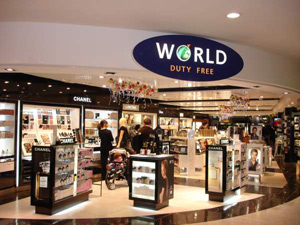 |  |
Acquiring World Duty Free will bring the buyer great beauty, liquor & tobacco businesses and margins | |
 | 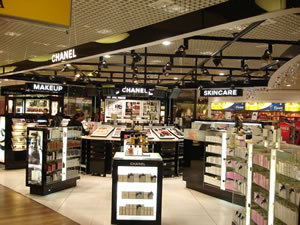 |
The World Duty Free flagship airport – London Heathrow – is the biggest duty free business in the world | |
“IT’S A BUSINESS THAT HAS GOT INTO MY BLOOD”
Asked by The Moodie Report how he feels leading the company at a time of such upheaval, Riches replied: “I have not only a huge professional regard for this business but also a personal one. It’s a business that has got into my blood. We have an unbelievable team of people here. We all believe in the same things and in doing things in the right way.
“Of course if there is going to be a change of ownership – as indeed when there was last a change of ownership when BAA sold to Ferrovial – you want to make sure that the people you work with and respect and who have supported you come through the change in the right way. And that’s exactly what I hope will happen this time. I’m not in charge of the process quite clearly but any opportunity I get to make sure that people come through this well and are in a good place when the new owner is appointed – that’s my role.”
Riches said that the decision to sell was “a great opportunity” for World Duty Free and its team. “Ferrovial have made their professional decision after a lot of deliberation”¦ they described it as non-core,” he explained. “What is sure is that whoever is the next owner it will be absolutely core for them and that’s a great place for World Duty Free to be. World Duty Free needs to be core to any business that owns it.”
He added: “There are all sorts of candidates who could buy the business. They will all have very strong views of how they are going to run it. I would very much hope we have an owner who runs it and builds on what we have delivered and built so far. It would be good to think that this could be the platform for the next stage of World Duty Free’s development… you never know they might even improve the business, and I think it’s a great opportunity.”
Riches said he doubted if the current credit crunch would dull private equity interest. “It depends on the contract length,” he said. “If the contract length is sufficient [as is virtually certain -Ed] then I think it will bring private equity into play. It’s maybe not as easy for the guys to put the money up as it was a few months ago but I would think the contract length is the secret to that. For any private equity company I think they would take a very long look at it. I don’t think it’s anything they will dismiss quickly.”
LIKELY CANDIDATES TO BUY WORLD DUTY FREE
The possible acquisitors of World Duty Free are trade buyers, private equity groups, the management team or a combination of the forementioned.
As previously reported, Autogrill and Dufry are the clear front-runners from the trade sector. Each has the ambition, the funding and, crucially, the ability to make big, synergistic cost-savings through any deal.
Autogrill owns 50% of Aldeasa (soon to be 100%) as well as a near neighbour of World Duty Free, Alpha Airports Group, which it acquired earlier this year. World Duty Free is a near perfect fit. “They can beat anyone in terms of synergies,” commented one long-time industry executive.
Dufry – backed by private equity giant Advent International – is probably the industry’s most ambitious player and World Duty Free ticks all the right boxes – long-term contracts, quality locations, and available synergies.
Lagardère, the parent company of Aelia and HDS Retail, is a powerful and ambitious player with some existing English and Northern Ireland airport operations (Luton and Belfast) as well as its powerful French business. Another potential candidate is one of Aelia’s minority shareholders, German retail and wholesale powerhouse Gebr Heinemann.
The Nuance Group is another possibility. At least one alliance between industry players is thought to be on the cards and two other retailers have indicated to The Moodie Report that they are considering entering the race. South Korea’s Lotte Group certainly has the financial muscle and plenty of ambition; Aer Rianta International should not be counted out; and the Falic family-owned Duty Free Americas is no stranger to big acquisitions.
Could management, with the right backing, table an offer? Mark Riches declined to comment but such a combination would be a formidable contender.
VALUING THE BUSINESS
When talk of a potential World Duty Free sale began mid-year, a price tag of £500 million (US$1.03 billion) was freely bandied about. Since we broke the story of the CAA’s “˜green light’ for the sale, we have spoken to a number of well-informed sources in the trade and the financial community about a realistic valuation of the business.
Not surprisingly – especially given that no-one knows the precise framework of what is available – opinions vary significantly. Some believe an upfront offer of around £400 million/US$825 million (plus of course an ongoing percentage of revenues across the respective contract terms) will clinch the deal. Others remain convinced that the final price will be in excess of US$1 billion.
World Duty Free’s outstanding performance of the past year in growing revenues by +7% (well ahead of international passenger growth and in the face of the worst security crisis to ever hit the industry) suggests the business is a solid bet – especially if it formed part of a global airport retail portfolio.
As always, trade buyers who can extract synergies with existing businesses have an advantage over a pure private equity player. Big cost savings would be on offer if Autogrill, for example, was the buyer, and such synergies could be factored into a highly aggressive bid.
“The key is the concession fee,” a source told The Moodie Report recently. “That’s the real decider of the ultimate value of the company.” If kept low – and remember Ferrovial needs the upfront amount to be maximised so it can pay down debt from the BAA acquisition – there could be very significant upside indeed in the valuation.
